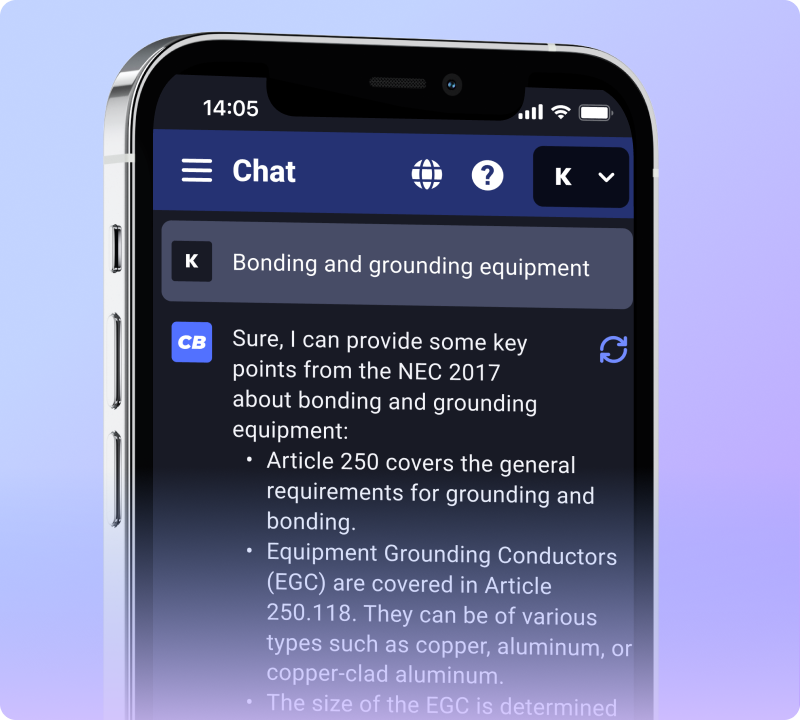Bidding on electrical commercial jobs can be hard. One fact is clear: accurate estimates win bids. This article shows how to make winning bids for electrical contracting in the construction industry.
Keep reading for expert tips.
Key Takeaways
- To bid on electrical jobs, start by reviewing specifications and analyzing drawings for a clear understanding. Count every opening separately.
- Create an accurate estimate by performing a quantity takeoff, calculating labor costs, including overhead and profit, then double-check before submitting your proposal.
- Choose projects that match your skills and understand all project requirements clearly to increase your chances of winning bids.
How to Bid Electrical Jobs in 7 Steps
To bid electrical jobs, follow a few simple steps. Start with understanding the project details and reviewing all documents.
Review specifications
Reviewing specifications is a key step in electrical job bidding. It helps you understand what the project needs. Go through the building specifications carefully. Look for details about materials and equipment required.
Each opening should be counted separately, like doorbell buttons and 240v receptacles.
This review will guide your estimating process. Getting it right here prevents mistakes later on. Check for any special requirements or codes that apply to this job type too. A solid grasp of these specs sets you up for success in commercial electrical projects and makes your bid more competitive.
Analyze drawings
Analyzing drawings is key for bidding on electrical jobs. Look closely at all the details in the plans. Check each section and note important features, like outlets and switches. Count every opening separately.
This includes doorbell buttons, garage door operators, and 240v receptacles.
Drawings help you understand the scope of work. They give clues about materials needed and labor hours required. Accurate analysis leads to better estimates. Bidding correctly can set you apart from competitors in the commercial construction market.
Perform quantity takeoff
Performing a quantity takeoff is a key step in bidding electrical jobs. This means counting all the materials needed for the project. Count every opening separately, such as doorbell buttons and 240v receptacles.
An accurate list of materials ensures you create a precise estimate.
Make sure to get current pricing from your electrical supply sources. Use this information to factor costs into your bid proposal accurately. Reviewing specifications and drawings helps in identifying these materials clearly.
A well-done quantity takeoff can greatly improve your chances during the electrical bidding process.
Calculate labor costs
Calculating labor costs is key for an accurate electrical estimate. Start by figuring out how many hours the job will take. Consider the experience level of your workers. Skilled electricians may cost more but can work faster and better.
Count every opening separately. This includes doorbell buttons, garage door openers, and 240v receptacles. Getting current supplier pricing helps too. Knowing how much materials cost ensures you include all expenses in your proposal for commercial jobs.
Factor in overhead costs and profit
After calculating labor costs, factor in overhead costs and profit. These costs include things like rent, utilities, and tools. They are essential for running your business. Always add a profit margin too.
This ensures you earn money on each job.
Getting current supplier pricing helps with accurate estimating when bidding on electrical jobs. Use this information to adjust your overhead and ensure it’s realistic. Keeping track of these expenses makes your electrical bid proposal stronger.
It also prepares you for possible contractor negotiations later on.
Create electrical estimate
After calculating labor costs and adding overhead, it’s time to create an electrical estimate. Start by listing every material you need for the job. Make sure to count each opening separately.
This includes doorbell buttons and 240v receptacles. Getting current supplier pricing helps you stay accurate in your estimates.
Review your notes from the specifications and drawings closely. Use this data to form a complete picture of costs. Include all necessary construction materials for clarity. A well-done electrical estimation can set you apart from other bidders in electrical project bidding or electrical contractor bidding scenarios.
It is crucial to have realistic figures before submitting any proposal for commercial jobs or residential projects.
Double check and submit proposal
Double-checking your proposal is key. Review every detail. Ensure your estimate includes all essential materials and labor costs. Count each opening separately, like doorbell buttons and 240v receptacles.
This helps create an accurate electrical estimate.
Submitting a professional proposal matters too. Present it clearly to stand out from the competition in the construction bidding process. Use current supplier pricing for accuracy in your bid management.
A thorough proposal shows you’re serious about the project, which builds strong contractor relationships.
Expert Tips to Successfully Bid Electrical Commercial Jobs
3. Expert Tips to Successfully Bid Electrical Commercial Jobs: To win more bids, focus on projects that fit your skills and ensure you understand all requirements clearly. Read on for more great advice!
Choose the right projects
Choosing the right projects is key for success in electrical job bidding. Focus on jobs that fit your skills and experience. Check specs and drawings carefully. Make sure you can handle the workload before putting in a bid.
Look at your past work with general contractors too. A good relationship can help you win more bids.
Being smart about the projects you select will lead to better chances of success. It’s also important to consider every opening separately, like doorbell buttons or garage door receptacles, to get a precise estimate.
Next, let’s talk about understanding bid requirements.
Understand bid requirements
Understanding bid requirements is key for electricians. Each job has its specific needs. Check the project plans and specifications carefully. Count every opening separately, such as doorbell buttons and 240v receptacles.
This step helps create an accurate estimate.
Knowing the competition matters too. Look at other bids to see what others offer. Analyze your past work with the general contractor as well. A strong history can boost your chances of winning a bid in electrical jobs.
Make sure you assess if you can handle the workload before moving forward with any electrical bid proposal.
Create an accurate and realistic estimate
To create an accurate and realistic estimate, focus on the details. Start by reviewing all specifications and drawings for the electrical job. Count every opening separately. This includes doorbell buttons and 240v receptacles.
Perform a quantity takeoff to know how much material you need.
Get current supplier pricing for your materials. This is key for accurate estimating in electrical jobs. Assess if your team can handle the workload before you bid. Choose projects wisely to match your skills and resources with market needs effectively.
Add overhead and profit
Overhead and profit are crucial parts of your bid. They help cover business costs and keep the lights on. Overhead includes expenses like rent, utilities, and salaries. Add a percentage to your total estimate for overhead.
Profit is what you earn after all costs. It should reflect the risk of the job and your skill level. Ensure both overhead and profit are clear in your electrical estimate. This will make your proposal more professional and competitive in electrical job bidding.
Present a professional proposal
A professional proposal is key to winning electrical jobs. Start by including all details about your estimate. Show clear calculations for labor costs and materials. Count every opening, like doorbell buttons or 240v receptacles, separately.
This attention to detail helps build trust with clients.
Use a clean layout and easy-to-read language. Highlight your experience and past work with general contractors if relevant. A well-organized proposal reflects professionalism in the construction industry.
It sets you apart from the competition and increases your chance of success in bidding on electrical commercial jobs. Next, get ready to adapt to project-specific variables for even greater success.
Be open to adapting to project-specific variables
Being flexible is key in electrical job bidding. Each project has its own needs. Adjusting bids to fit these needs can make a big difference. For example, you must count every opening separately.
This includes doorbell buttons and garage doors. Noticing these details ensures accuracy in your estimate.
Understanding the competition helps too. Check what other electricians are doing with their bids. Learn from past experiences with general contractors as well. This insight shows how likely you are to win the job.
Adapting your approach based on specific project factors leads to better results in electrical estimating and bidding success.
FAQs
1. What are some expert tips for successfully bidding electrical commercial jobs?
Expert tips include cost estimation, understanding building codes, mastering project management, and improving customer relations.
2. How can an electrical bid checklist help me in my construction industry job?
An electrical bid checklist helps you to ensure all aspects of the job are considered during the bidding process. This includes pricing, scheduling and managing the tasks effectively.
3. Why is it important to understand building codes when bidding on electrical engineering jobs?
Understanding building codes is crucial as it ensures that your work will meet safety standards and regulations which could impact your bid negotiations positively.
4. Can good customer relations influence my chances of winning an electrical commercial job bid?
Yes! Building strong customer relations can give you a competitive edge by increasing trust and potentially leading to more successful bids in the future.
5. What role does project management play in successful electrical job bidding?
Effective project management skills allow for accurate cost estimation, efficient scheduling, and effective execution of tasks – all key factors when placing a competitive bid.


